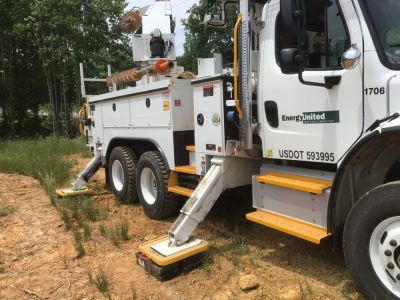
Equipment Stabilization Considerations for Utility Operations
Utility workers face numerous challenges in their quest to build, maintain and improve infrastructure. One significant yet sometimes overlooked challenge is the risk associated with equipment instability. Crucial aspects of equipment setup include stabilization of the machine and selection of appropriate supporting materials – such as outrigger pads and cribbing blocks – to enhance work-site […]
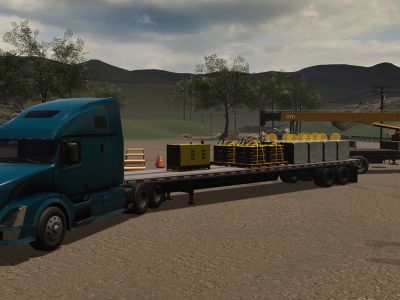
Reduce Risk with New Strategies for Operator Training
Utilities and utility contractors highly value safety. However, labor shortages can sometimes corner field supervisors into making a judgment call about whether an equipment operator is ready for the task. If Foreman A believes an operator is ready after several weeks of training but Foreman B believes the operator still needs several months, who is […]
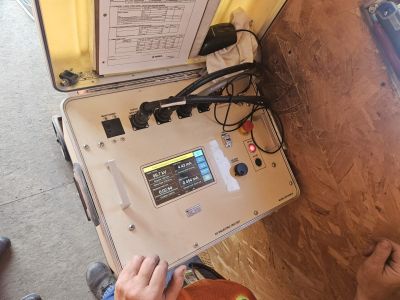
Dielectric Testing for Insulating Aerial Devices
Insulating aerial devices and digger derricks are used to provide a level of protection to their operators and ground personnel who work around energized power lines. Following established safe work procedures is critical, as is testing and maintaining the equipment so that it continues to provide the insulation users expect. You cannot simply look at […]

DOT Compliance Considerations for Electric Utilities
The roar of diesel engines fills the midnight air as a crew of linemen prepares to depart for a critical repair job. Their trucks are loaded with tools and equipment, ready to tackle a downed power line that lies miles away. But before they hit the open road, there’s one crucial hurdle to clear: ensuring […]
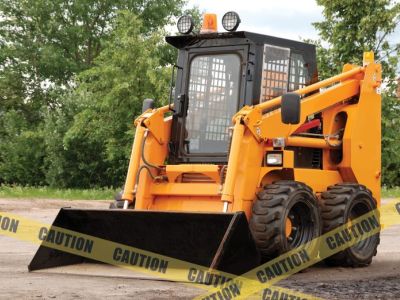
Skid-Steer Loaders: Hazard Awareness and Recommended Safety Practices
In 2009, OSHA published a safety and health information bulletin in part because of the seriousness of injuries that have occurred with skid-steer loaders (see www.osha.gov/sites/default/files/publications/shib011209.pdf). Similarly, NIOSH published an alert in December 2010 in response to the hazards and serious injuries that have occurred with these machines (see www.cdc.gov/niosh/docs/2011-128/default.html). In their published documents, the […]
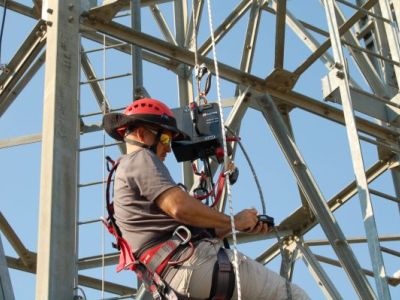
Powered Ascenders in the Utility Space
With the variety of ascenders available, crews have another option for use in difficult access scenarios.
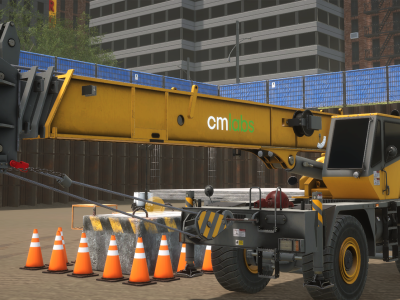
Advancing Workforce Skills Using Simulation-Based Training
Like nearly all industries that require skilled workers, the electrical utility industry currently faces the challenge of having enough trained and qualified workers to meet demand and changing market conditions. According to a 2020 U.S. Energy and Employment Report (see www.usenergyjobs.org), all energy sectors reported hiring difficulties: “Lack of experience, training, or technical skills were […]
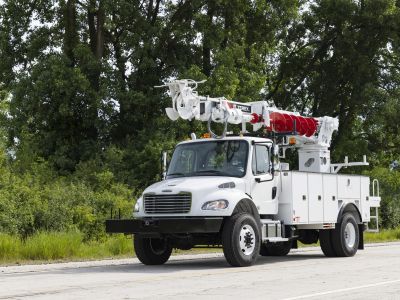
Understanding Wind Speed Limitations on Utility Equipment
The question about what’s permitted for operating aerial devices and digger derricks in high winds is one that comes up frequently with users. Utility crews often must deal with working in wind. Trouble trucks responding during storm recovery, transmission operations to place visibility balls on lines and working above rooflines in urban locations are just […]
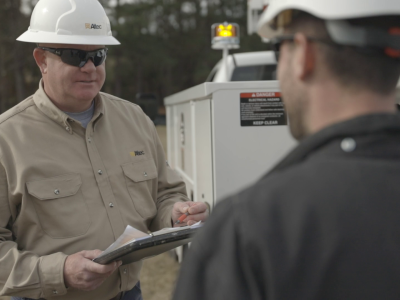
ANSI A92.2: 2022 Changes and Training Requirements
Here’s what owners and operators should know about upcoming updates to the standard. Updates are coming to the ANSI A92.2 standard, titled “American National Standard for Vehicle-Mounted Elevating and Rotating Aerial Devices.” Your most common piece of powered equipment soon will have new or revised requirements for design, manufacturing, testing, training and operation. These new […]
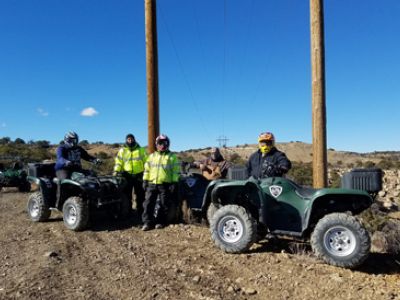
Building an ATV/UTV Training Program for Utilities and Contractors
Utility task vehicles (UTVs) and all-terrain vehicles (ATVs) are quickly becoming the preferred motorized equipment for lineworkers to use to access difficult terrain for necessary inspection and repair of infrastructure. And although they are exceptionally capable, these vehicles – identifiable by their large off-road tires, relatively small size and light weight – pose certain challenges […]
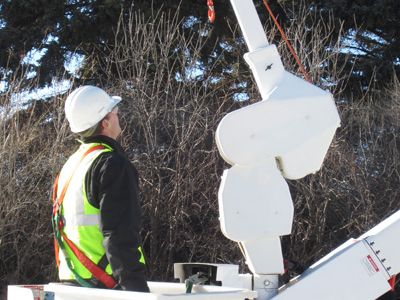
Best Practices for Using Your Aerial Device Jib to Handle Transformers
When it comes to lifting transformers, aerial devices equipped with jibs are one of the handiest tools available to lineworkers. Compared to old methods for transformer replacement – which required workers to climb the pole and use a pulley to manually lift the transformer – using a jib is safer, easier and more productive. Most […]
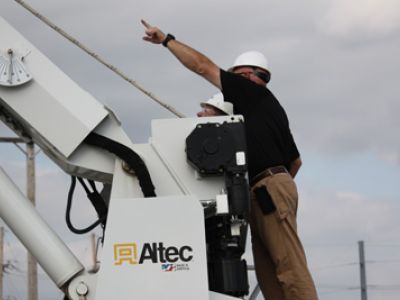
Aerial Equipment Innovations Aim to Protect Your Workers
Aerial devices have improved exponentially over the last 20 years. Many purchasers and users of the devices, however, are not fully aware of the options now available to them. Technology and innovation – driven by ANSI standards and user collaboration with manufacturers – have resulted in aerial equipment that provides greater functionality and improved safety […]
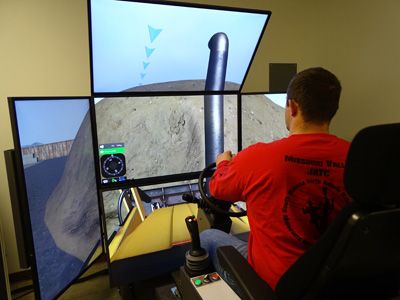
Using Simulators to Standardize Utility Operator Training
The Missouri Valley Line Constructors Apprenticeship and Training Program has supplied a steady stream of qualified workers to the electrical industry of the American Midwest since the mid-1960s. Operating out of seven locations in Iowa, Minnesota, Missouri, Nebraska, North Dakota, South Dakota and Wisconsin, Missouri Valley Line Constructors has approximately 600 apprentices enrolled in the […]
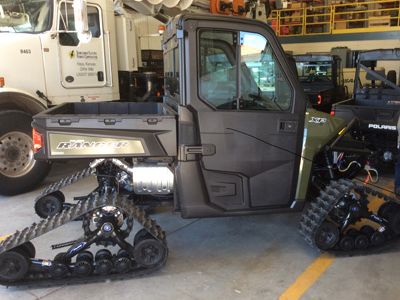
Enhancing Safety for Line Patrol Technicians
Sunflower Electric Power Corp. is a generation and transmission cooperative located in Western Kansas. We have approximately 2,600 miles of overhead transmission lines, which we patrol annually using vehicles. While you may have heard stories about Kansas being flat as a pancake, they are not true. Several areas of our service territory feature deep ravines, […]

Are You Driving on Autopilot?
Vehicles have been evolving and manufacturers have been adding safety features to them since the first combustion-engine automobiles were manufactured in the late 1800s. By 1968, all vehicles were required by law to have seat belts, and since 1995, all passengers – adults and minors – have been required to wear them. Anti-lock braking systems […]
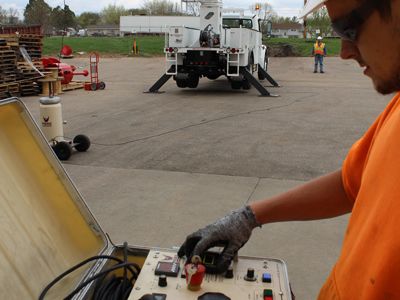
When Insulating Booms Fail Dielectric Testing
Insulating boom aerial devices and insulating boom digger derricks are designed to provide secondary protection to help prevent workers from being electrocuted. Maintenance and dielectric testing are critical and required by law to verify that the insulating portion of the machine is functioning as designed. A new boom is dielectrically tested at the factory following […]
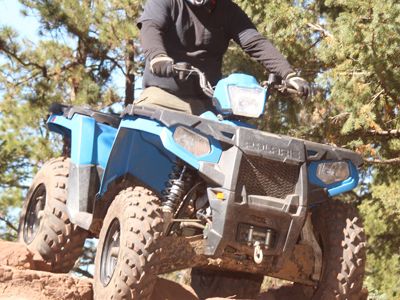
When Utilities Leave the Pavement: Off-Road Driving Safety Challenges
The need to safely access hard-to-reach areas continues to be a struggle in numerous industries, including utilities. Historically, people have pushed the limits of machinery and designed better tools in attempts to access such areas. In the early days of automobiles, for instance, enthusiasts modified and improved the designs of their vehicles, enabling them to […]
Train the Trainer 101: Enforcement of Vehicle Weight and Load Securement Rules
In the past few months, I have received comments and inquiries from all over the U.S. regarding what appears to be stepped-up enforcement of both load securement and vehicle weight rules. It’s not unusual that these topics garner attention from the U.S. Department of Transportation when it comes to carriers, but this recent uptick seems […]
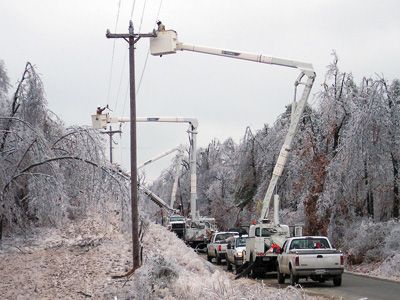
Using Technology to Eliminate Aerial Device Overloads
Knowing bucket capacity and understanding how to read a jib load chart are two critical elements of aerial device operation. While both tasks are fairly straightforward, it is crucial to stay within the allowable capacity of the unit. The platform capacity and material-handling capacity provided by the manufacturer are not recommendations – they are absolute […]
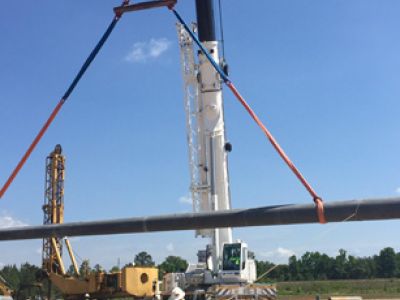
Overcoming Barriers to Crane and Rigging Skills Development
The utility industry has high expectations for employing safe work practices and readily invests in equipment and training. Maintaining a workforce with the right skills is a herculean task. Crane operation and rigging skills development presents greater challenges than some other areas because these skill sets typically are not part of the routine work schedule. […]

